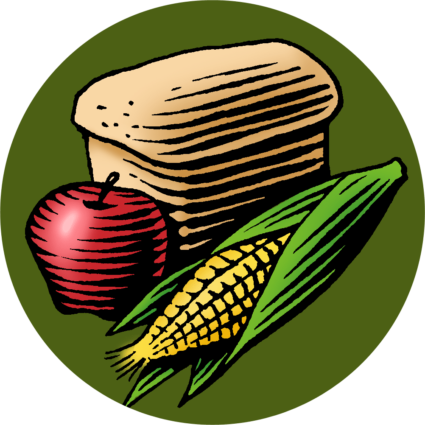Selling SNAP-Eligible Foods

SNAP-Eligible Food Items
Federal law mandates that SNAP benefits be used to purchase only specific (“SNAP-eligible”) food items. Thus, SNAP-authorized farmers markets must take steps to ensure that the market and vendors do not sell ineligible items to SNAP customers. If they do sell ineligible items to SNAP customers, they risk penalties including disqualification from the SNAP program, monetary fines, and criminal sanctions. For markets that operate a SNAP program, it is important to understand that vendors who sell ineligible items to SNAP customers put the market's SNAP authorization at risk.
- What food items are SNAP-eligible?
- Do states have different rules regarding what food items are SNAP eligible?
- If ineligible items are sold, who is liable, and what are the potential penalties?
- What are the potential penalties for SNAP rule violations?
-
What food items are SNAP-eligible?
Under federal law, individuals are allowed to use SNAP benefits to buy almost any type of food intended for human consumption. (See the full FNS definition of “eligible foods” here.) Eligible foods include:
- Fruits and vegetables
- Breads and cereals
- Meats, fish, and poultry
- Dairy products
- Seeds and plants that produce food
Individuals cannot use SNAP benefits to buy:
- Alcoholic beverages
- Tobacco
- Hot food or food products prepared for immediate consumption (there are some exceptions; for example, for meals served in some group-living facilities, or when a federal disaster has been declared)
- Vitamins or medicines
- Other nonfood items
For more on eligible foods click here.
Note: SNAP-eligible food items are the not the same as staple foods. Individuals are allowed to use SNAP benefits to buy a much wider range of items than just the staple foods that retailers must stock on a continuous basis to obtain SNAP authorization. For information on SNAP retailer authorization, click here.
Back to questions
-
Do states have different rules regarding what food items are SNAP eligible?
No. Aside from one exception which allows Alaskan SNAP recipients to purchase hunting equipment with their SNAP benefits if they live in an area where it is extremely difficult to access food and they “rely substantially on hunting and fishing for subsistence,” there are no state variations (605-4 B. 1. b. State of Alaska, Dept of Health & Social Services, Division of Public Assistance). FNS regulates which food items are SNAP eligible and it is the same in every state.
Back to questions
-
If ineligible items are sold, who is liable, and what are the potential penalties?
Who is legally responsible for the sale of ineligible foods by vendors?
The Market Vendors Hybrid Who is the SNAP- authorized retailer? The market is authorized and has one POS device for the entire market. Vendors are individually authorized and operate their own POS devices. The market operates a centralized POS device and some vendors have their own devices, too. Who is legally responsible? The market organization and its “responsible official(s).” The vendor (POS device owner and operator), not the market organization. Whoever operates the POS device and holds the SNAP license under which the transaction occurred. Example A vendor accidentally sells a customer a hot cup of coffee which is paid for with SNAP benefits. The entire market could be disqualified from participating in SNAP. A vendor with his/her own POS device accidentally sells hot prepared food to a customer in exchange for SNAP benefits. Generally, only that vendor (owner and personnel) can be penalized. If a vendor with their own POS device sells an ineligible item to a customer in exchange for SNAP benefits, then generally only the vendor (owner and personnel) is responsible. If a vendor sells an ineligible food item to a SNAP customer in exchange for SNAP tokens purchased at the market’s central POS device, even if the vendor has its own POS device, then the market organization, its “responsible official(s),” and the vendor could be penalized, though the vendor’s own SNAP authorization may remain unaffected. If the vendor sold the ineligible item using their own POS device as noted at left, the vendor would generally be liable, not the market.
Back to questions
-
What are the potential penalties for SNAP rule violations?
Generally, a market (or vendor) may be penalized in four different ways for violating SNAP provisions.
- First, FNS could disqualify the market (or vendor) from the SNAP program on a temporary or permanent basis.
- Second, instead of disqualification, FNS may issue monetary penalties against the market (or vendor) if FNS determines that disqualification would cause hardship to participating SNAP customers.
- Third, the market’s “responsible official(s)” may be barred from SNAP authorization in the future.
- Finally, market (or vendor) personnel may be subject to criminal punishment for intentional fraud and trafficking (purposefully exchanging ineligible items for SNAP funds).
For more information on potential penalties for SNAP violations, click here.
Back to questions
